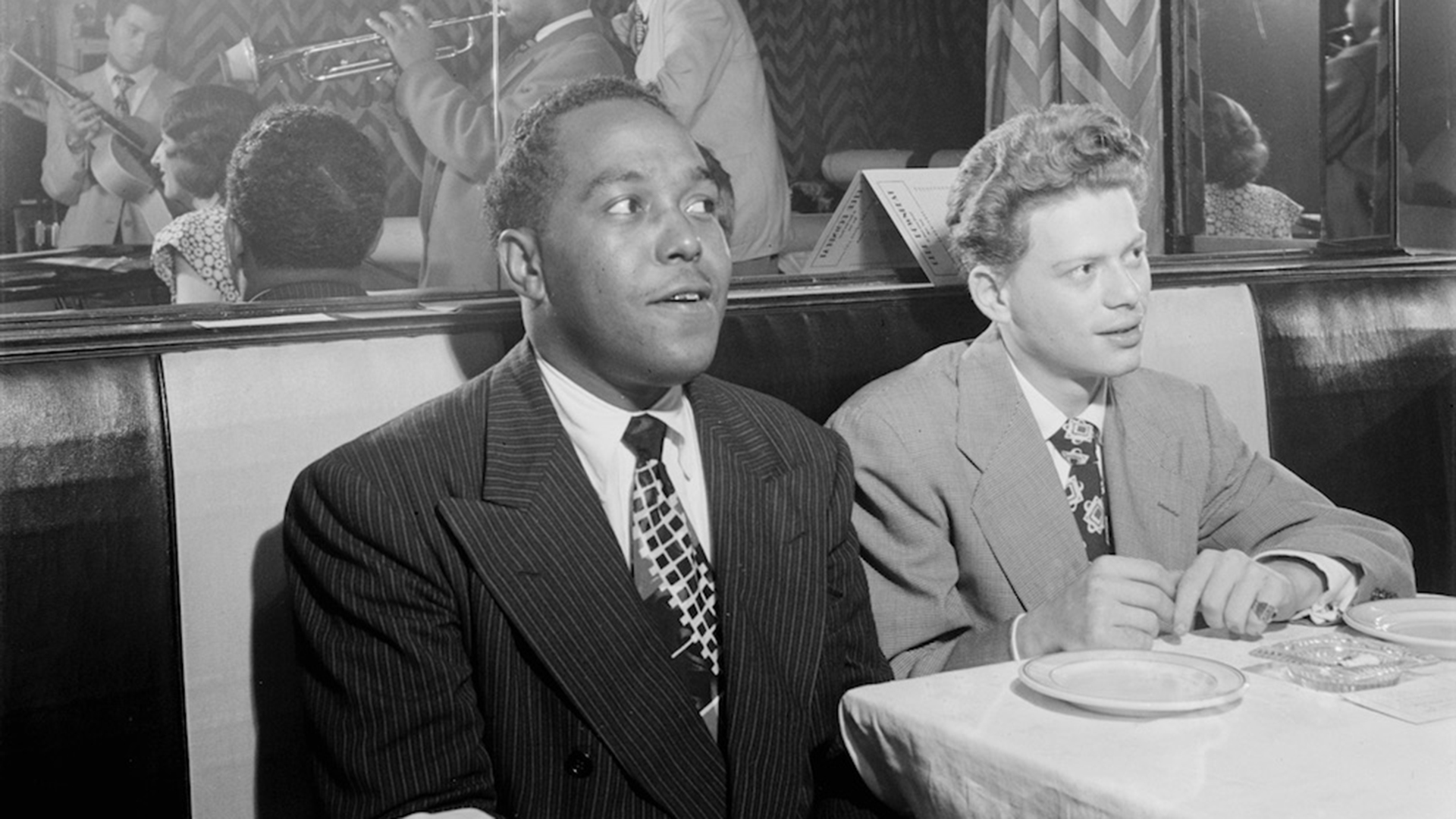Screenplay
The Red Arrow

Written by Mark Rodney, Ronald Wenick, Anat Golan
Warning – This review contains spoilers
The Red Arrow takes you through the tumultuous life of a talented musician and con artist Red Rodney whose questionable decisions blur the lines between his art, personal life, and criminal undertakings. Set against the glamorous yet gritty backdrop of 1960s Las Vegas, this story manages to feel both expansive and intimate, offering a whirlwind of musical highs, personal lows, and a gripping father-son dynamic that keeps the emotional stakes high throughout.
I found the structure of the screenplay to be fascinating in how it layers Red’s backstory with the events leading up to his eventual arrest. As Red lies unconscious in a hospital bed after being brutally beaten by Officer Albright, the screenplay shifts into a series of flashbacks, unraveling the decisions and deceptions that led him to that moment. From Red’s early days as a young musician playing with the likes of Charlie Parker, to his spiraling descent into drug addiction and criminal schemes, the story flows naturally. The father-son relationship between Red and Mark is at the emotional heart of the screenplay, and though Red’s character development takes time to fully reveal itself, it’s ultimately satisfying when he decides to take responsibility for his actions.
One thing I appreciated was the pacing of The Red Arrow. While the script is packed with action—from heists to impersonations and run-ins with the Mafia—the quieter moments, like Red’s few strained interactions with his son, provide necessary breathing room. These scenes effectively ground the story in emotional truth, even as the larger-than-life scams and Vegas nightlife take center stage. Red’s interactions with his ex-wife Norma and his new romantic interest, June, add further layers of tension and conflict highlighting the ways his personal and professional lives are constantly at odds.
The Red Arrow is well-written, though there are a minor formatting issues that took me out of the story for a moment. Specifically the transitions between flashbacks and present-day moments could benefit from clearer headings to guide the reader. However the dialogue is sharp and well-suited to each character, capturing the era and the unique personality of Red as both a smooth-talking con artist and a man haunted by his failures. The balance of humor and drama works well particularly in the scenes involving Red’s musical performances with Sammy Davis Jr., which offer a brief respite from the darker elements of his life.
The screenplay is rich in its portrayal of Las Vegas during a time when both the music industry and organized crime were at their peak. The world-building feels authentic with the inclusion of real-life figures like Howard Hughes and Sonny Liston adding a layer of historical intrigue. The Red Arrow is not just a story about a man’s mistakes; it’s also a commentary on the pressures of fame, the cost of ambition, and the price one pays for trying to outrun their past. That said, I think the ending, where Red faces the difficult decision between saving his own life or returning to save his son, is where the screenplay shines the brightest. The moral dilemma felt earned, and it added a level of depth to Red’s character arc that made his final choice feel impactful.
The Red Arrow tackles fatherhood, redemption, and the consequences of one’s actions, and these elements resonate strongly throughout the screenplay. Red’s journey is not just about escaping the law; it’s about coming to terms with the ways he’s failed as a father and trying to make things right, even if it’s too little, too late. Watching him evolve from a man solely focused on his own desires to someone willing to sacrifice for his son adds a much-needed emotional depth to the chaotic world of cons and crime that surrounds him.
I believe audiences would enjoy this screenplay during a table read. It’s got everything you could want in a biopic—drama, suspense, humor, and heart. The musical elements provide a fun, rhythmic contrast to the darker moments, and the story keeps you guessing, especially as Red’s deceptions grow larger and more dangerous. The Red Arrow is a compelling look at one man’s attempts to reconcile his talent with his flaws and make amends with the people he’s hurt along the way.
Comedy
Troop 458

WARNING! This review contains SPOILERS!
Troop 458, written by Trevor Allen, captures the often daunting, yet transformative, experience of being the new kid in a world full of unknowns. We follow Sidney, an anxious boy thrown into his first Boy Scouts campout, where he faces both the perils of acceptance and the strangeness of his eccentric scout leader. As spooky campfire tales start to weave into reality, Sidney is forced to confront his fears head-on, finding moments of humor, adventure, and unexpected camaraderie along the way.
I like the concept of Troop 458 because it blends coming-of-age themes with a playful sense of adventure, all wrapped in an atmosphere tinged with just the right amount of mystery. Allen’s writing brings to life a cast of memorable characters, especially through Sidney’s journey of growth. The tension between humor and fear feels authentic to the Boy Scouts’ setting, and it captures the real challenges kids face when trying to fit in.
What resonated with me most was the screenplay’s exploration of courage—not just in facing mythical dangers but in embracing who you are, quirks and all. Some aspects could benefit from a clearer focus on character motivations and tighter pacing to keep the momentum strong, particularly during scenes that blur the line between myth and reality.
The dialogue is great in many places, offering humor that feels natural for a group of young scouts. There were moments where I felt the conversations could be a bit sharper or more distinct to heighten the comedic or emotional impact. Character development is a strong suit, with Sidney’s evolution being both relatable and satisfying, but secondary characters could have a bit more depth to elevate the ensemble.
Allen’s Troop 458 is polished, with solid grammar, spelling, and formatting that adhere to professional standards. The structure is clean and makes for an easy read, setting up scenes that are visually compelling.
Troop 458 delivers an enjoyable mix of humor, heart, and a touch of the supernatural, leaving me eager to see how it might come to life on screen.
Screenplay
Dazy Girl

Written by Charri Brummer
WARNING! This review contains spoilers.
Dazy Girl is a tender exploration of love, loss, and the unexpected ways we form connections, even in the most ordinary places—like a simple hammock grove. The story follows Riley, a young woman piecing her life back together after a breakup. It’s easy to get lost in her daily routines, the kind that are comforting in their predictability, until Sam enters the picture. Sam is quirky, persistent, and utterly charming, and their relationship develops beautifully through shared moments, playful banter, and a sweet, recurring symbolism involving cookies and daisies. Just when I found myself caught up in the blossoming romance, the narrative takes a heart-wrenching turn, revealing Sam’s terminal illness. This twist casts a shadow over their deepening connection and leads Riley on an emotional journey toward acceptance and healing.
The grammar, spelling, and punctuation are solid, but the screenplay’s formatting needs some love. For instance, character names aren’t consistently capitalized, and parentheticals are embedded within the dialogue instead of beneath the character’s name, which could throw off the rhythm of reading, especially during scenes with fast-paced exchanges. The lack of age indicators early on was a bit frustrating, making it tricky to visualize the characters right from the start. Minor tweaks aside, the story is engaging with natural dialogue and a story that flows smoothly.
What really stands out in Dazy Girl is Riley’s evolution from heartbreak to finding unexpected love with Sam, who brings spontaneity and laughter into her structured world. Their dynamic is delightful and full of humor, like when they bicker over hammock spots or engage in playful cookie-related arguments. But it’s the emotional depth that hits hard. The screenplay weaves in themes of mortality and loss so seamlessly that I found myself alternating between laughter and genuine tears. Sam’s illness and eventual passing may feel somewhat predictable, but the way the story handles the aftermath—Riley’s struggle to honor his wishes and the bittersweet journey of moving forward—left a lasting impression. The emotional beats are paced perfectly, keeping the story compelling.
Dazy Girl offers a heartfelt, engaging narrative full of witty banter and poignant moments. It’s a beautiful blend of romance and drama that I think would really resonate with audiences looking for a story that makes them both laugh and cry.
Screenplay
North Pole: The Final Gift

Written by Travis D. Norman
WARNING! This review may contain spoilers.
When I dove into North Pole: The Final Gift, I was immediately captivated by its imaginative twist on holiday horror. Picture Zara, our fierce protagonist, thrust into a nightmare version of the North Pole, where Santa Claus isn’t the jolly gift-giver we know but a twisted figure wielding an axe. The screenplay does a fantastic job setting the tone with eerie visuals of a frozen, desolate wasteland, a place that feels both mythological and unsettlingly real. As Zara pushes deeper into this corrupted North Pole, we witness her uncover the rotting remains of what used to be Santa’s workshop—a grim monument to lost joy that immediately pulls you into the darkness of this world.
What grabbed me most was how the script straddles the line between festive and horrifying, creating a dark fantasy that’s strangely captivating. The themes are clever, and I imagine the balance of these elements would make for an exciting table read.
I am going to be a bit picky on the script format though. The grammar, spelling, and punctuation are pretty solid, but I couldn’t help but notice some formatting quirks. A few dialogue lines aren’t centered properly, and the lack of page numbers threw me off a bit—especially since traditional screenplay formatting standards weren’t quite met. The action lines left me wanting a bit more. For example, when I read descriptions like, “the wraith is stronger than the guardian they faced before, more attuned to the primal magic of the world,” I felt that a bit more cinematic language could have pushed the visuals further. There are also some clarity issues, especially with the flashforward on page 47. It jumps focus abruptly from Milo and introduces new characters in a way that made me feel disconnected from the main thread of the story.
I found Zara’s quest pretty darn cool. She starts out battling a monstrous Santa, and things escalate as she faces off against Krampus and other supernatural guardians. The pacing is excellent, with strong visual storytelling that keeps the tension high. Zara’s character is brave and determined, and I loved how she continually drives the plot forward. When new characters suddenly appear and the flashforward shifts gears so drastically, it muddles the flow and clarity of the story. That said, the blend of Christmas folklore and horror works for me and the tension builds beautifully in this magical nightmare.
North Pole: The Final Gift delivers an exciting mix of horror, fantasy, and holiday magic. With some adjustments to the format and a bit more narrative consistency, I think it could really be magical —especially in a live reading or as a strong contender for screen adaptation.










